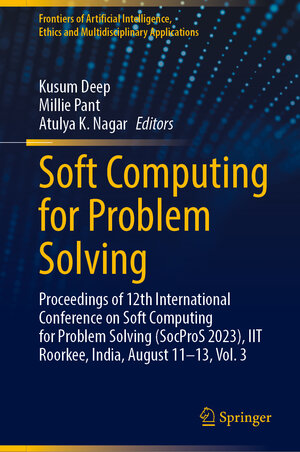
Soft Computing for Problem Solving
Proceedings of 12th International Conference on Soft Computing for Problem Solving (SocProS 2023), IIT Roorkee, India, August 11–13, Vol. 3
herausgegeben von Kusum Deep, Millie Pant und Atulya K. NagarThis proceedings volume presents 41 high-quality research contributions at the forefront of soft computing theory and applications and real-world impact. The third volume from this conference, its chapters reflect the current trajectory of soft computing research, covering advances in machine learning, neural networks, fuzzy systems, nature-inspired algorithms, and big data analytics. Applications discussed range across critical domains such as healthcare, education, legal systems, cybersecurity, environmental monitoring, and industrial automation. Noteworthy contributions include studies on smart assistive devices for Alzheimer’s patients, intelligent classification of recycled materials, and AI-based criminal face detection systems. On the theoretical side, the volume includes novel algorithmic developments such as the Shuffled Flamingo Search Algorithm and structural insights into swarm-based optimisation.
The volume illustrates how soft computing continues to address complex real-world problems through adaptive, scalable, and human-centric approaches. It also captures the spirit of interdisciplinary engagement, with contributions from early-career researchers alongside seasoned academics, enriching the community’s collaborative potential. This book will be of interest to researchers, engineers, practitioners, and postgraduate students working in artificial intelligence, optimisation, and computational intelligence, particularly those interested in the translational impact of soft computing across diverse sectors.



